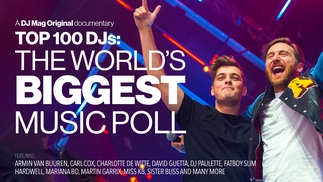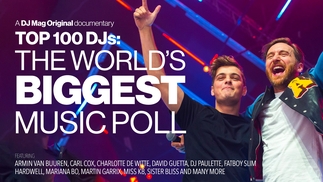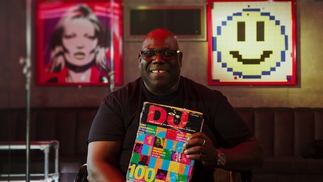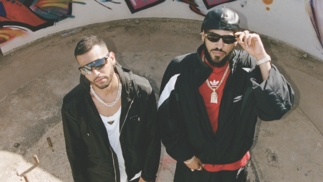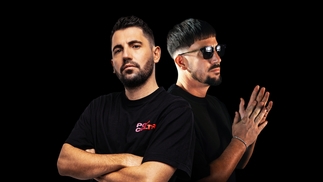Future house hero Oliver Heldens hits Miami: Cover Feature
Read our latest UK cover in full...
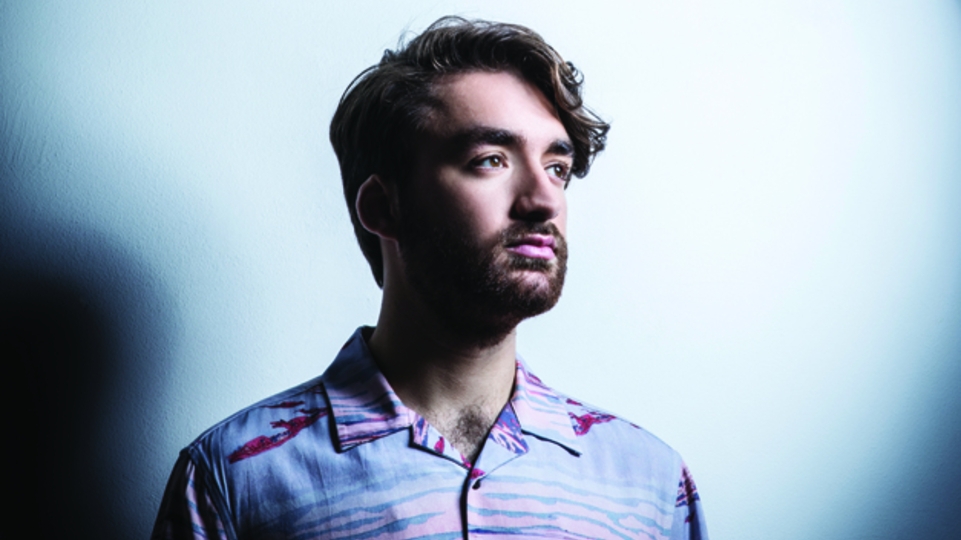
Oliver Heldens is the latest Dutch wunderkind DJ/producer to go global. Charting at No.8 in the latest Top 100 DJs poll, the future house star has been going from strength to strength on his own terms since his breakthrough hit 'Gecko' was first picked up by Tiësto a few years ago. Broadening out his main stage sound and even dropping some techno these days, Heldens has solidified his place in the new wave of clean-cut, pop-leaning Netherlands talent changing the face of mainstream rave culture. As he prepares for his fourth Miami, and a headline slot at DJ Mag's Poolside Session at the Raleigh Hotel, DJ Mag meets him in Amsterdam to talk family, house music, social responsibility and his meteoric rise...
Words: Ben Hindle
------------------
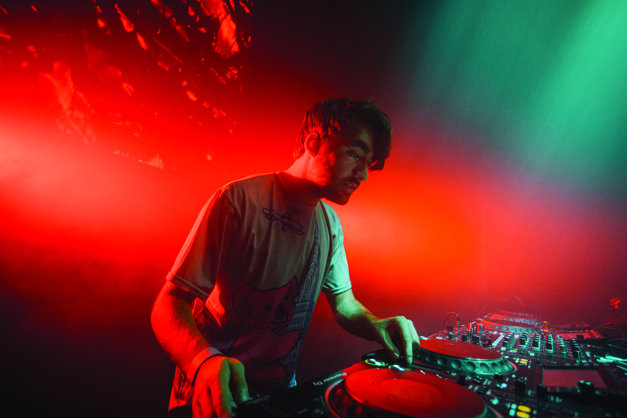
Oliver Heldens was just 19 years old when he first played Miami. His first time on US soil, not even old enough to buy a beer, but booked for half a dozen gigs at one of the world’s biggest dance music gatherings.
For Heldens, the March event holds a special place in his heart; that first trip in 2014 fell mere months after his first single, the now instantly recognisable slice of groovy future house that is ‘Gecko’, landed via Tiësto’s Musical Freedom imprint, putting the young Dutchman on the map. “Now every time I'm back in Miami, it feels like my New Year,” he tells DJ Mag as we chat on the sofa of a small café in Amsterdam.
Tall and bearded, with a reassuring depth to his voice, it would be easy to think of Heldens as far older than his current 21 years (22 by the time you read this). His style today is a bit of a giveaway — padded purple jacket, black jeans, floppy wave of thick brown hair swept across his brow — and the fact that he doesn’t waffle on about the good ol’ days is too. But the biggest tell are his eyes. Innocent, alert, slightly nervous at times, but always inquisitive (and without any crow’s feet!), if those peepers tell us anything, it’s that Heldens is constantly on the ball, observing, processing and, most importantly, learning.
Being successful at such a young age is impressive, if hardly surprising nowadays, particularly with EDM turning producer/DJs into the new pop stars, and the likes of Martin Garrix (two years Heldens’ junior) winning the coveted Top 100 DJs title. But that’s not to say Heldens hasn’t earned it. First taking up production when he was just 12 years old, Ollie is dedicated to his craft to say the least, almost jeopardising his education because of it. “When I was 15/16 I got it in my head like, ‘OK, I really want to do this’,” recalls Heldens, “like tunnel vision, ‘I wanna do this, I'm gonna get better at making music’. In the first few months I saw so much development — and then I didn't really feel like finishing school as well.”
In fact, Heldens ended up having to re-sit a year of school in order to pass his final exams, but by the point he did graduate ‘Gecko’ had already been released and he was fast becoming a household name.
Eager to keep the conversation on a positive note, Oliver’s mum, Elaine Schaap, chimes in from across the room. “He was unstoppable,” she says, turning to her son. “You totally believed in yourself, you totally believed that you could make a living.”
“Yeah, from a young age I definitely realised that I did have good ideas and then it was just a matter of if I could translate these ideas to good-sounding music — which of course then took me a few years,” continues Heldens.
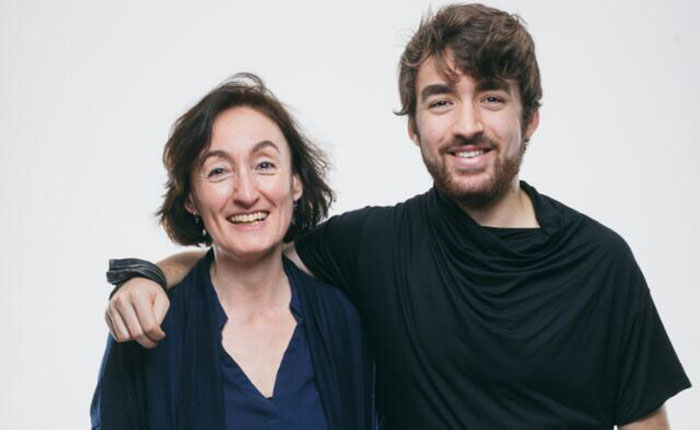
MUM
Schaap’s occasional contributions to our conversation are to be expected, especially given the subject matter. While Heldens is constantly flanked by various PRs and team members (perhaps another sign of his age, or just the highly controlled nature of a commercialised industry), his mum has been a key figure in his career since day one. Not only did Schaap support him as a teenager, bringing his music into work and helping him through his tough time at school, but with over a quarter of a century of business know-how under her belt, she is also his financial advisor and helps handle his contract negotiations.
Family is clearly hugely important to Heldens; when we ask how on earth he manages to release a new episode of his Heldeep radio show every week, for instance, he replies: “Well, I have my brother who also goes through all the promos in my email, so that helps. When I started doing it in 2014, I just couldn't find enough music every time... nowadays I'm in a luxurious position, where I get a lot of promos.” And an eager helper, by the sounds of it — well, what are brothers for?
His musical genes, meanwhile, are firmly rooted in his dad’s side. “My father was a music freak and a sound freak. He plays keys, like Hammonds, Rhodes, also synthesisers,” explains Heldens. “My dad listens to so many different kinds of music. He comes from jazz and funk, but he also loves Kraftwerk and he loves some drum & bass, like LTJ Bukem, and he loves Kerri Chandler and Richie Hawtin, which was really good for me — but then I also never really listened to my dad, I was really stubborn.” Schaap bursts into a knowing chuckle.
Given Heldens’ own penchant for breakbeats — “They have such good drive!” — and his more than noteworthy techno-influenced side-project, HI-LO, we wonder if dear old dad has actually had more of an impact than Ollie cares to admit. “Yeah, yeah I guess so. I heard a lot,” he concedes. “But then, my first love in dance music was this kind of Eurodance stuff, and from there I got into jumpstyle and hardstyle. Then when I went to high school I got really into house music, because there was a crossover of electro-house with tech-house influences, like old Fedde Le Grand, Chocolate Puma, Bingo Players, Sander van Doorn, these Dutch house guys from like 2006.”
As Heldens tells it, this led to an interest in progressive and big room, before the explosion of the garage-inspired UK “deep house” sound around 2012 had him hooked on the likes of Disclosure, Julio Bashmore and Dusky. “For me, all that music was super-fresh, but also it drew me back to that era with the Dutch house stuff and fidget house. So all these things together is what made me make stuff like 'Koala' and 'Gecko' — it's like UK deep house but then with a more big room sound,” continues Heldens, a description we find it impossible to refute.
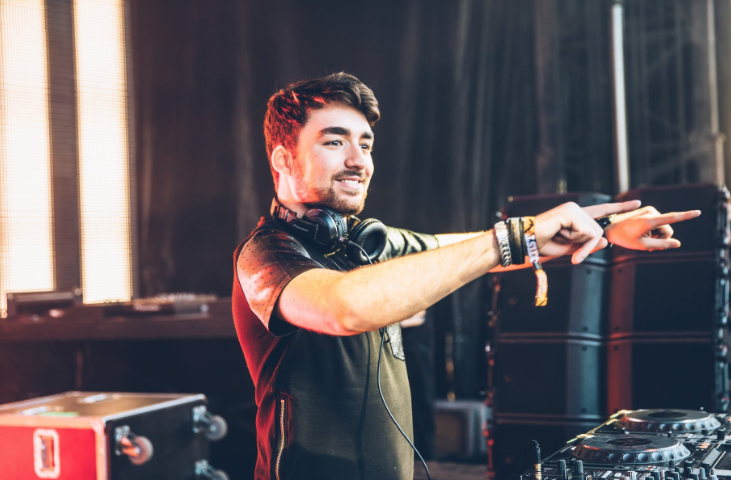
Heldens has found heaps of support within the music world too, particularly from the Dutch artists he revered so much growing up. During our discussion on his first jaunt to Miami, Heldens remembers how inspiring it was to have Chocolate Puma, Fedde Le Grand and Laidback Luke telling him he was the most talked about artist of the week — later that year, it seemed every artist in the Top 100 DJs poll was touting him as 2014’s breakthrough act.
And, of course, it was Tiësto, an undisputed legend of Dutch dance music, that first introduced Heldens to the world. “He was the first one who really jumped in on 'Gecko', he loved the track right from the beginning,” says Heldens, fondly.
“Actually, before Tiësto I sent it to the guys at Spinnin', who really liked it, but thought it wasn't something for the mainstage, and also not really credible enough to be a deep house thing. And I sent the track to Axwell; the A&R manager at his label was like, 'Woah this is amazing, I really want to sign it, but I have to check with Axwell'. Two days later he got back: 'Too bad but Axwell doesn't think it fits well with the label'. So then I thought maybe the track is too different... but I sent it to Tiësto and he was like, ‘This is amazing, let’s meet in Amsterdam.' For me, that was really motivating because he really believed in what I was doing.
“At the time, I was also making hardstyle and electro-inspired big room stuff — because at the time that really worked — so then that moment when he loved 'Gecko' and I met him, that gave me so much more motivation to just make the music I really wanna make,” Oliver adds.
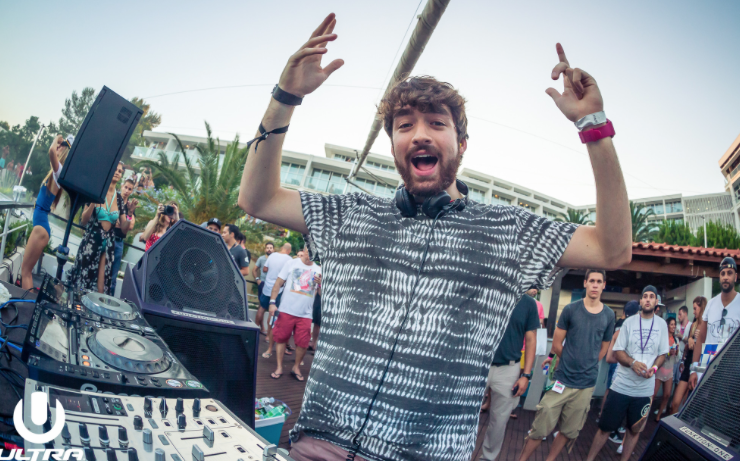
TIËSTO
Tiësto became something of a mentor for Heldens — although Ollie again admits that he can be a stubborn student — and shortly afterwards, the pair began work on infectious future house number ‘Wombass’, which they released together in 2015 and re-purposed for smash hit ‘The Right Song’ the following year, with the addition of Natalie La Rose’s catchy vocal.
Even before that, when he was honing his craft as a teenager, Heldens had the backing of a future World’s No.1 DJ. “On the internet I got a lot of help because there was this forum, a Dutch community called vato.nl — there was this Dutch DJ, Vato Gonzalez and he had a website and forum — and actually people like Hardwell, Martin Garrix, Nicky Romero, they were also on that forum when they started,” Heldens tells us. “When I posted my first track, it sounded like shit but I thought the idea was amazing — I mean, when I made it,” he laughs.
“When I posted it people were like, ‘Woah, the mixing is so wrong, it's not good’, but then someone who commented on it was DJ Marty — Martin Garrix — and he was the one who said, ‘I actually think this is a good idea, of course it doesn't really sound that good but it's his first track, so keep going' — or something like that.”
Top praise for sure, and Heldens recalls that it was through the Vato forum that he discovered peers such as Julian Jordan and Jay Hardway (and, of course, Garrix), keenly expressing how helpful having that online community was for everyone involved.
It’s obvious he’s not wrong either — a quick glance at the Top 100 DJs reveals just how dominated it is by Dutch artists (ten Dutch DJ/producers appear in the Top 20, for starters — and 30% of the Top 100 overall), and while stalwarts such as Armin van Buuren and Tiësto still maintain their grip on the top five, it’s the new wave — Garrix, Hardwell and Heldens, amongst others — who are stealing the limelight. Heldens himself only entered the chart in 2014, at a far-from-shabby No.34, and has since continued to rocket towards the top, nabbing the No.8 spot last year.
Heldens believes it’s in the Dutch nature to succeed. “We are more critical, so we like to make stuff better than it already is. I heard something the other day that apparently there's some kind of big vehicles to help people with earthquakes and they are made by Dutch people, but we never have earthquakes,” he laughs, “we just make them because we can.”
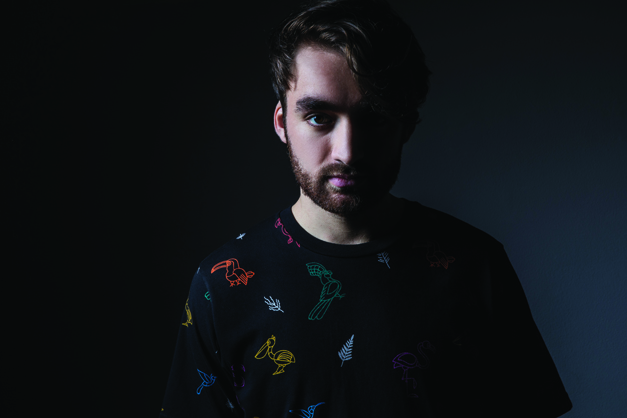
Beyond this, though, Holland’s long love affair with dance music is perhaps the biggest factor in its current success. Heldens cites the rise of the nation’s trance and gabba scenes, and festivals such as Dance Valley and Mysteryland, during the ‘90s as key driving forces, while decades of acceptance on mainstream radio have woven dance music into the very fabric of the Dutch psyche.
But enough of the past — does Heldens feel like he’s part of a new wave of Dutch talent, the natural heirs of Tiësto and Armin and Ferry Corsten?
“Yeah...” he hesitates, his humble nature clearly making him uncomfortable with the idea. “I just feel in general that there's a new wave of our music going on. Also, in the more commercial scene, it's going back to proper club music — like more about the basslines and stuff.”
Even in America? “Definitely. The people in America are pretty open-minded,” replies Heldens. “The crowds are pretty good actually, I really have fun playing in America because there's more of a culture going on when it comes to raving or going to dance festivals. Here in Europe, you go to festivals or clubs, it's just what people do, whereas there it's like a lifestyle for some people and they're really dedicated.
“They're just less educated when it comes to dance music, especially house music, but I also think there's a lot of room to grow,” he continues. “I know a lot of people say the bubble has burst, dance music is over, but I think house music can be so much bigger — even there. Of course it comes from there, from Chicago, but people in general just don't know. So I think the future is really exciting, especially in America, because it already blew up, the whole scene, and I think now people are getting more educated and people will really find the stuff they love.”
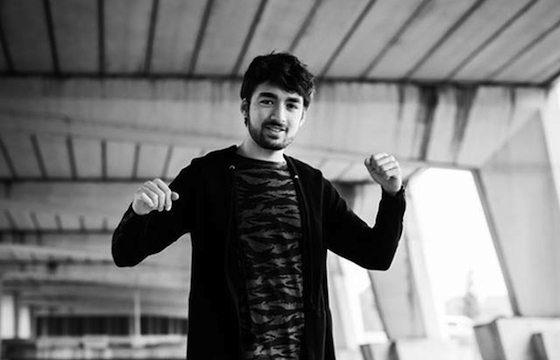
TECHNO
This diversification of the US scene suits Heldens to a tee. Given his wide-ranging influences, his DJing has always naturally encompassed a variety of genres, far beyond the future house and EDM labels he so often gets stuck with. Lately, he explains, he’s been pushing this even further, even dropping techno — something usually reserved for his HI-LO alias — into his Oliver Heldens sets.
His trick is using edits or mash-ups to put his own spin on tracks, easing his audiences into more unknown territories. “It's actually getting more fun because my record collection is getting bigger and I make new edits every week,” says Heldens. “I've got a lot more experience than three years ago, and also I know more what I really want. Nowadays I play everything on the fly, I just know how I start and I usually know my last track and I just go from there.”
Unlike the brash EDM drop-fests that have become the norm thanks to the instant hands-in-the-air gratification they give to DJs, Heldens prefers to create a sense of flow within his performances. “I'm just a big lover of funk, rhythm and bass,” he explains. “Of course I love melodies, everybody loves melodies, but for me dance is basically just stuff with good rhythm, good drive and funk and bass, that's what I'm all about. The thing I don't like as a DJ, which you see happening a lot, is these big breakdowns before the drop,” he continues, imitating a swooshing pad noise, “and then the next song starts to build up again. That's something I'm trying to do less. I try to keep things flowing instead of being stop-start.”
It seems to be working too, as Heldens says he now feels more comfortable than ever playing on the mainstage, and he believes that overall, popular taste is moving in the same direction. The box initially put around him after the success of his early releases is falling away, allowing Heldens far more freedom in his selections, to the point where he looks back on his past sets and regrets even playing so much of his own music. “In a few years I see myself more as just a standard established DJ, instead of being like a pop star,” he tells DJ Mag. “I had big hits with 'Gecko' and 'Koala' and the 'Can't Stop Playing' remix, and I definitely play them, but now it's getting easier to kill my darlings and just play what's best in that moment, instead of playing my new or old tracks.
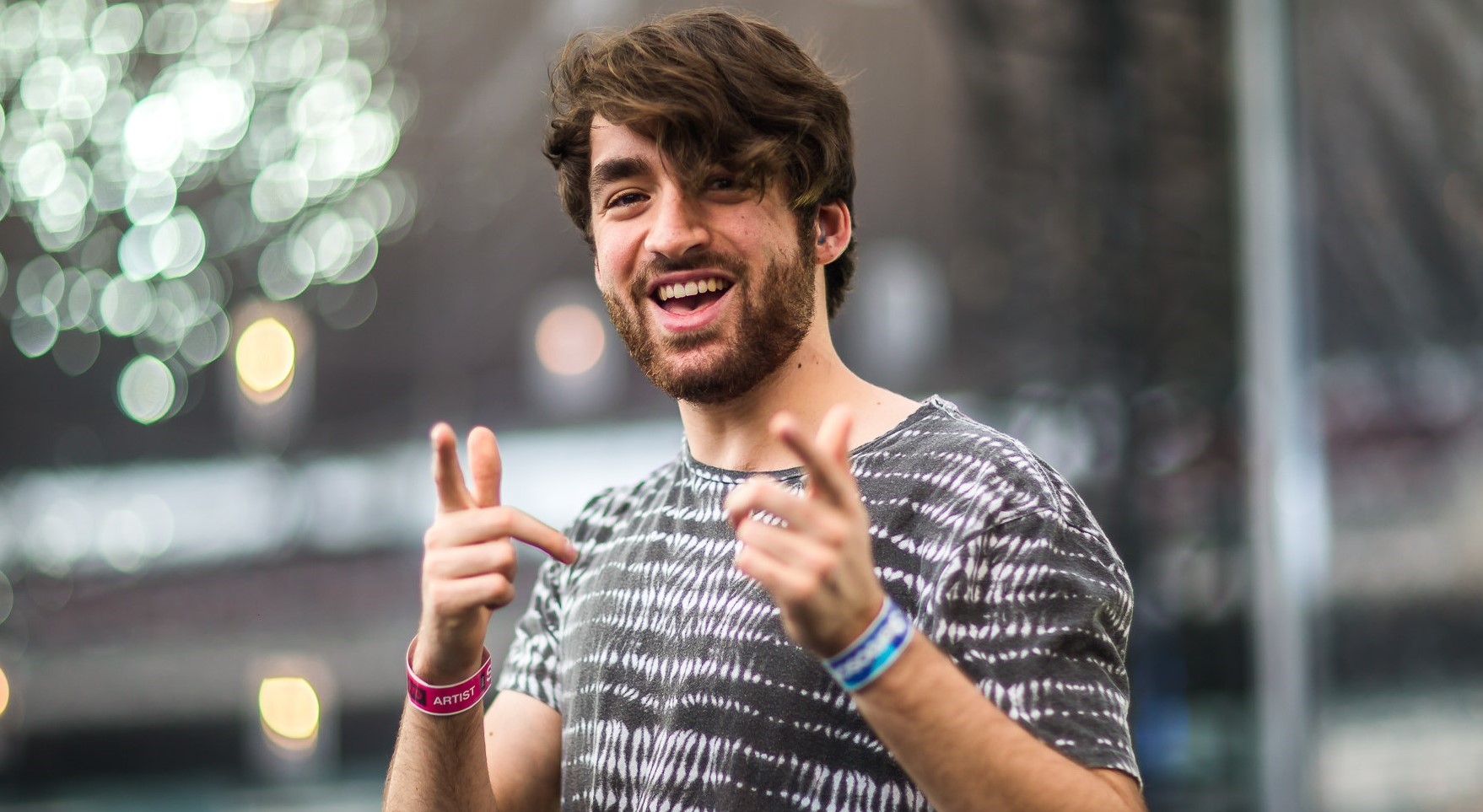
“Oliver Heldens is like a brand,” he adds, “but it doesn't mean I just have to play my own music.”
We’re assured this definitely doesn’t mean less new Oliver Heldens tracks, however. Still as keen as ever to make music, Ollie tells us it’s on tour that he finds most of his inspiration to produce. The increased creative freedom he’s allowed himself while DJing gives such energy and drive that he’ll often finish a set and jump straight on his laptop back at the hotel to start a new tune. “When I feel very energetic, I feel like making music,” he beams.
And then, as if to well and truly bury any fears of his production focus slipping, Heldens reveals an album is on the way. “For now I'm more focused on releasing singles and stuff, but there is an album coming,” he says. “I have also some tracks that I really love that I could release as singles, but there's other stuff that would make more sense to release as singles. I've been working a lot with songwriters too, and I've been really getting into writing vocals more, so on the album there's gonna be some more vocal tracks.”
“It's a very different thing,” he explains of the songwriting process, “but I just like to have the best of both worlds, to make some proper club tracks but also to make more melodic tracks with vocals. I see my sound as Oliver Heldens going less aggressive and just more warm and summery, a bit more soulful, and also very disco-inspired. I just love a lot of different stuff and I take inspiration from a lot of different things.”
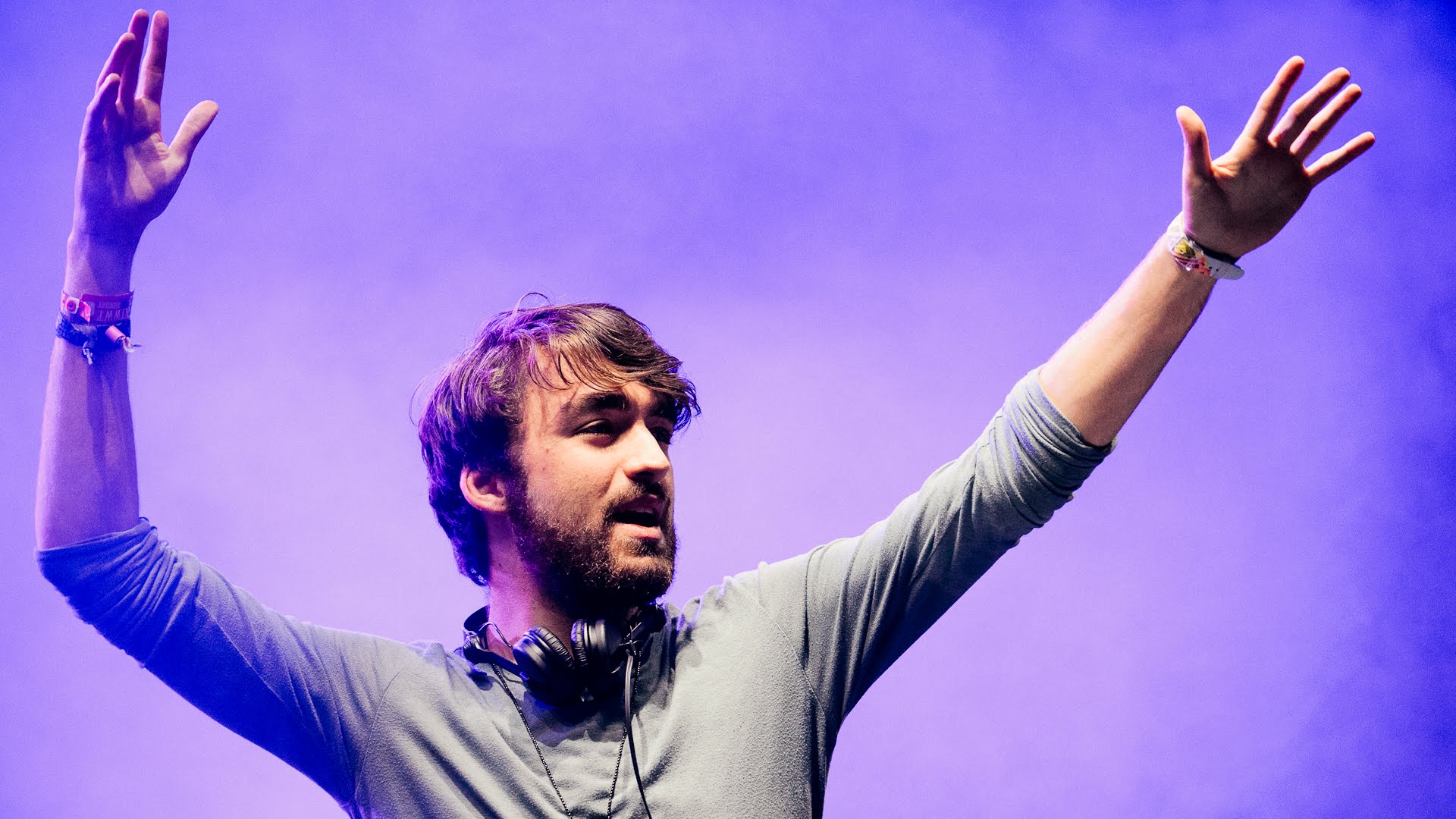
Although he’d never claim so, it’s this softer, more varied tone — along with Heldens' general positive presence — that is the driving force behind the EDM scene’s slow movement away from hard-nosed bangers — yet it goes beyond the music too. Far from a poster boy for the hedonism that has dominated dance music throughout its history, Heldens is part of the new squeaky-clean wave of young millennials that are turning away from drugs and alcohol, yet still subscribe to the progressive values that have always been at the heart of the movement.
Well known for his healthy lifestyle, Heldens launched his Deep Sparkling Water soft drink at the end of 2016, donating a percentage of the proceeds to a ocean clean-up charity. He also supports a school-building scheme in India, and passionately explains how this education can change lives. “It's really important that people with a lot of money give a part of it to other people who are less fortunate,” he enthuses. “In general, I see the world is getting richer and there are less poor people, but there are still a lot and there's also a big difference between rich and poor. I don't want to get too political, but with the whole capitalism structure you can't really change that. It’s also super-important for me to not be too nationalistic and support other countries and good causes, so in the future I'm definitely gonna do that even more.”
Heldens is certainly leading by example when it comes to being a positive role model for his impressionable young fans. And, while those in the public eye are often forced to present themselves as all sunshine and rainbows, he’s never conceited and readily admits that he does sometimes over-think or doubt himself, but that’s only human and, after all, he’s still finding his place in the world.
DJ Mag asks whether he thinks he’ll be in the position of his own mentor, Tiësto, in years to come — the wise elder to the next generation, as they make their own mark on dance music.
“Maybe,” he replies. “I do get messages from people saying that they got into dance music and house music through my music, and of course that's amazing to hear, but sometimes I feel like I'm just getting started, I'm working on so much new music and the future looks really good.
“My goal was always to be able to make it in music so I could focus on creating. That dream became true, so for me now, the goal is just to always make new music which really excites me, and just be creative, because when I'm creative, I'm happy.”
